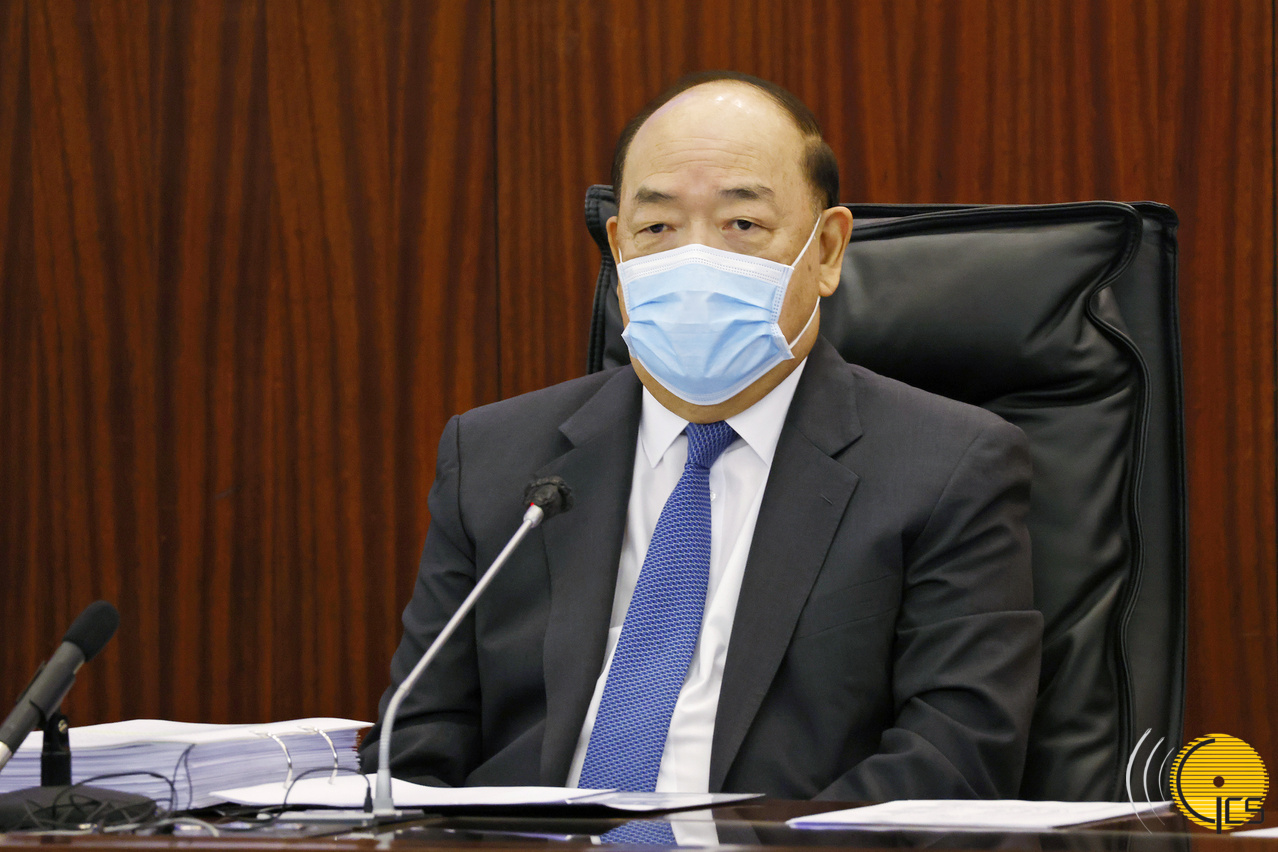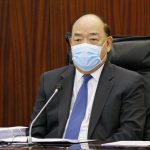 The Chief Executive, Mr Ho Iat Seng, attends a plenary session of the Legislative Assembly to answer Legislative Assembly members' questions on Government policy and social issues.
The Chief Executive, Mr Ho Iat Seng, attends a plenary session of the Legislative Assembly to answer Legislative Assembly members' questions on Government policy and social issues.
The Government has always striven to create job opportunities for local residents, and had new policies to tackle the issue of unemployment, while pressing ahead with development of nascent industries and cultivation of talent with the aim of bolstering economic diversification.
The Chief Executive, Mr Ho Iat Seng, made the remark on Tuesday (9 August), at a plenary session of the Legislative Assembly, during which he answered legislators’ questions on Government policy and social issues.
Members of Legislative Assembly expressed concerns during the question-and-answer session about the local job market. In his reply, the Chief Executive noted that the economic impact of the COVID-19 pandemic had led to rising unemployment in Macao.
Mr Ho explained that in response to the problem, the Government had introduced a subsidy scheme for hiring local workers, and had cut the quota for non-resident employees in all sectors.
According to the Chief Executive, the latest official figures showed that Macao’s jobless rate stood at 4.8 percent, which meant about 15,000 residents were unemployed. Only 8,000 people however were registered as jobless with the Labour Affairs Bureau.
He therefore urged unemployed people to register with the authorities, so that job-matching services could be arranged for them.
Regarding nascent industries, the Chief Executive said his administration would spare no effort in promoting the development of four new sectors: technological research and high-end manufacturing; Macao-branded traditional Chinese medicine; cultural tourism and the convention and exhibition trade; and modern financial services.
He pointed out that the development goals of the aforementioned sectors were outlined in the 2nd Five-Year Plan of the Macao Special Administrative Region (2021-2025).
The Chief Executive said the Guangdong-Macao Intensive Cooperation Zone in Hengqin would prioritise development of high technology, and the “Big Health” industry. He revealed that a state-backed semiconductor manufacturer had recently set up business in the Intensive Cooperation Zone, with an initial investment of more than 40 billion renminbi.
The Government would strive to offer more supportive policies for the high-technology sector, in order to attract a greater number of high-tech enterprises and professionals to Macao, and to encourage a greater amount of technological innovation, he added.
The Chief Executive pointed out that artificial intelligence would be a major route forward in terms of nascent industries, as would development of the metaverse.
He said the first metaverse-related project had already started in the Intensive Cooperation Zone.
He added that many new products in the “Big Health” industry and the high-technology sector had reached a mature stage of development, and young people in Macao could use their innovative ideas to market these new products.
Mr Ho said the Government was in the process of reviewing several applications for change-of-use permission regarding land at the Concordia Industrial Park, with the aim of creating a new industrial park with the participation of the high-technology sector, and increasing the contribution of the manufacturing sector to the local economy.
He added that the Government would also explore the development of other high-value-added activities, such as the jewellery-processing industry.
Mr Ho also said the Islands Medical Complex was pivotal to Macao’s development of the “Big Health” industry, adding that a preparatory office had been established. Talks with the Peking Union Medical College Hospital to set up a regional medical centre in Macao were under way, in order to spur the growth of the local medical sector, the insurance sector, and medical tourism.
The Chief Executive said additionally that talent development was the foundation for growth. The Government had doubled its efforts in promoting local students’ talent development in science-related disciplines, encouraging secondary schools and universities to produce technology-smart graduates.
At present both the University of Macau and the Macau University of Science and Technology are equipped with State Key Laboratories, while the City University of Macau and the Macao Polytechnic University have introduced programmes on artificial intelligence.
The Government had submitted a bill on talent development to the Legislative Assembly, Mr Ho added. The bill aims at facilitating the tiered development of talent in various sectors in Macao.


